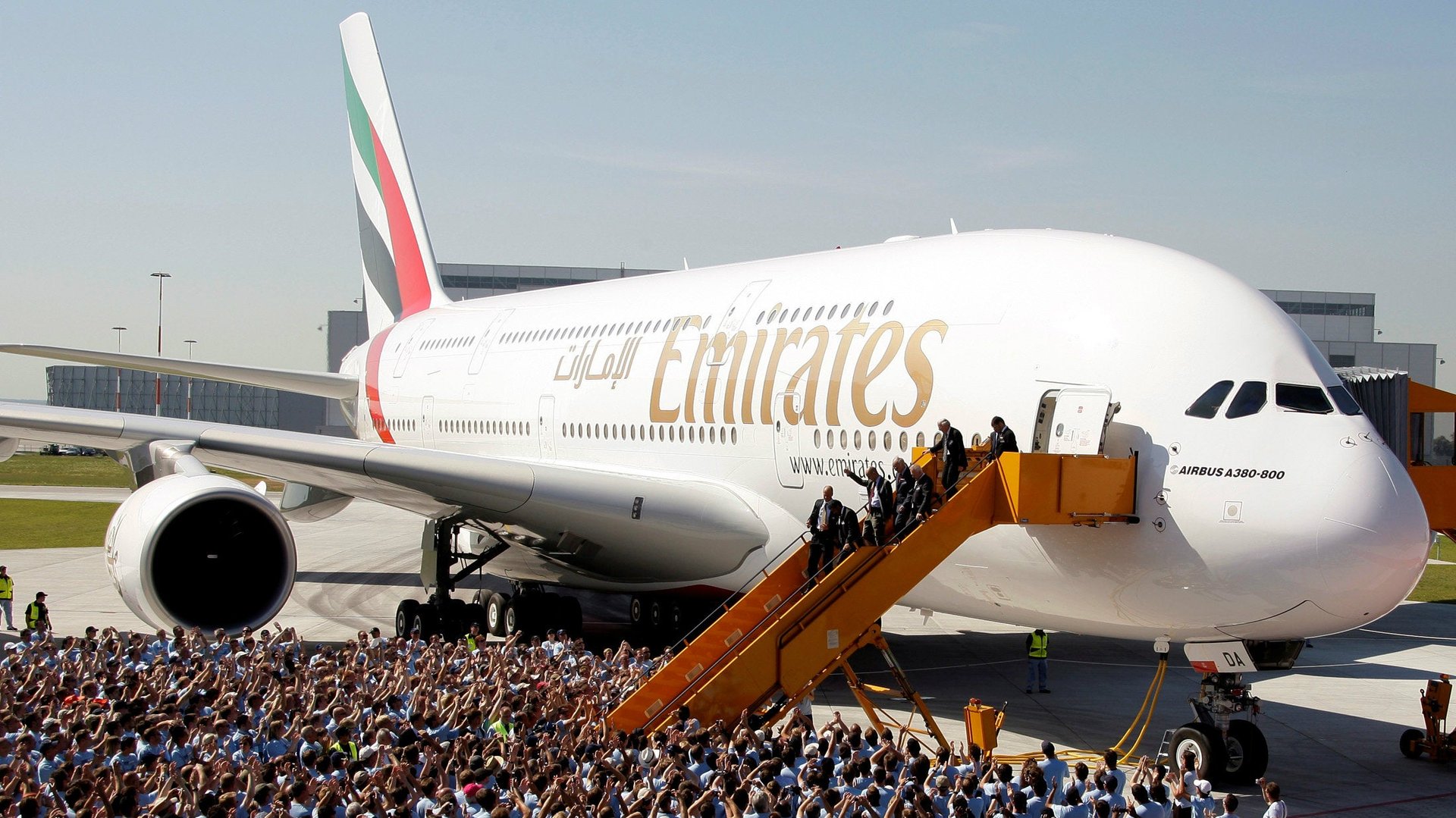An obituary for the Airbus A380
In what is the final nail in the jumbo-sized coffin of the A380, Airbus announced today that it will deliver the final model of the aircraft in 2021.


In what is the final nail in the jumbo-sized coffin of the A380, Airbus announced today that it will deliver the final model of the aircraft in 2021.
The move came after Emirates, a vital customer, reduced its order of the supersized plane from 162 to 123. With no backlog of orders from other airlines, Airbus said it sees no reason to carry on making the A380.
The decision did not come easy. Airbus CEO Tom Enders said in a statement:
The A380 is not only an outstanding engineering and industrial achievement. Passengers all over the world love to fly on this great aircraft. Hence today’s announcement is painful for us and the A380 communities worldwide. But, keep in mind that A380s will still roam the skies for many years to come and Airbus will of course continue to fully support the A380 operators.
Though the day may be sad for jumbo-jet enthusiasts, it’s been a long time coming. Air travel has changed irrevocably since the A380 first took to the skies just over a decade ago. The hub-and-spoke model of the past relied on shuttling large volumes of passengers from one big city to another, and then ferrying them onwards with smaller aircraft. Today, the skies are ruled by leaner, more efficient wide-body jets with two engines, rather than four. Aircraft like the Boeing 787 Dreamliner and the Airbus A350 carry fewer passengers on more direct routes and are built with materials that make the jets much, much cheaper to fly.
Boeing’s take on the double-decker four-engine jumbo jet, the 747, has also long been in decline. And while both of these aircraft will continue to fly for at least another decade, the era of aviation they represent—one marked by a touch of glamor and grandeur—has been replaced by something else entirely.
Low-cost long-haul carriers have stripped back the flying experience to the bare essentials, and legacy carriers have followed suit. This has coincided with the democratization of travel, which means that more people than ever are willing to fly, so long as they can do so as cheaply as possible—comfort be damned.
While Boeing’s 747 debuted in 1969—giving it a long, much-admired lifespan as the world’s first wide-body jet—the Airbus A380 only began commercial flights in 2007, arguably right around the time commercial aviation began to shift. The company delivered just shy of a quarter of the 1,200 planes it planned to sell when the aircraft first came on the scene.